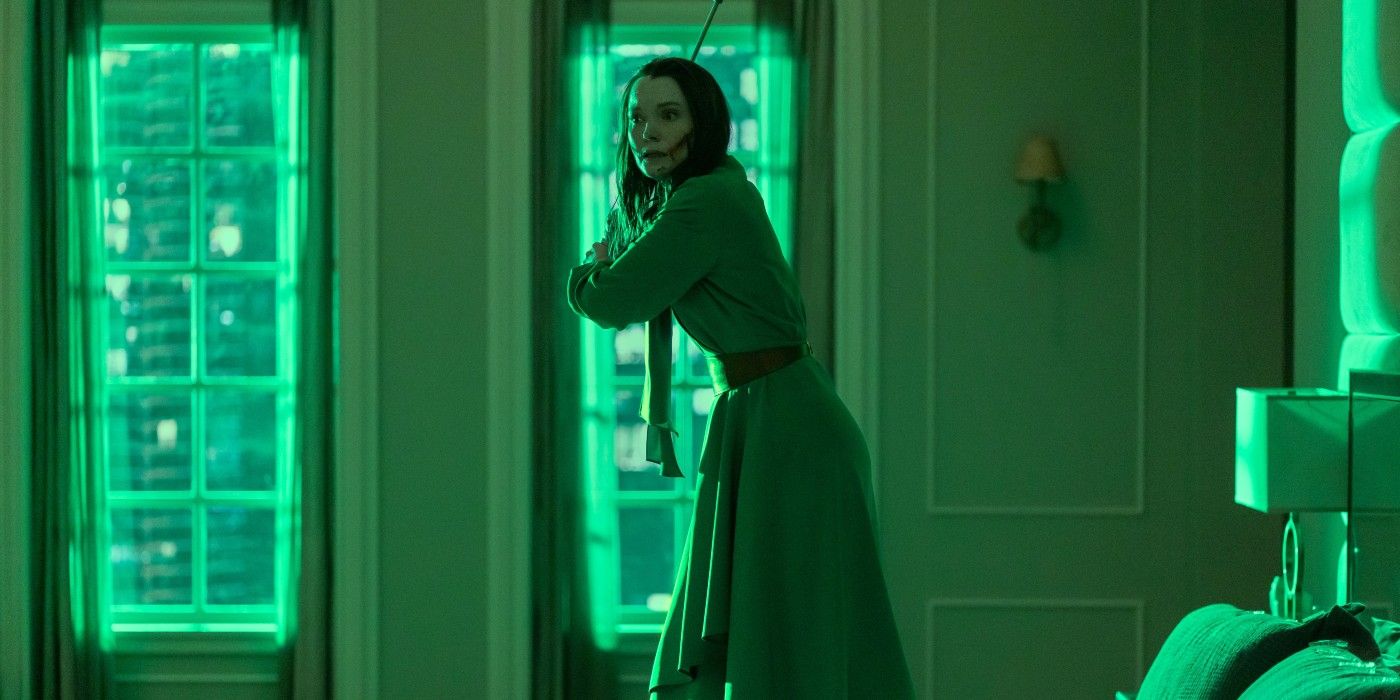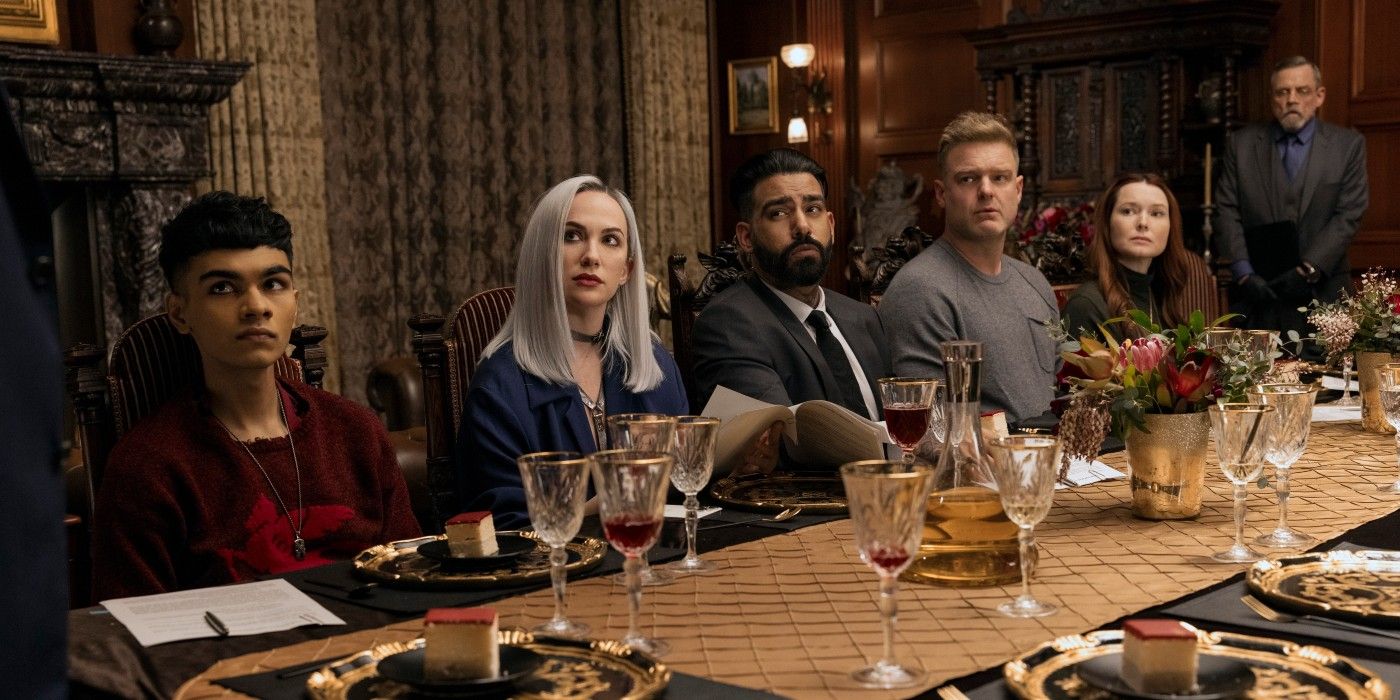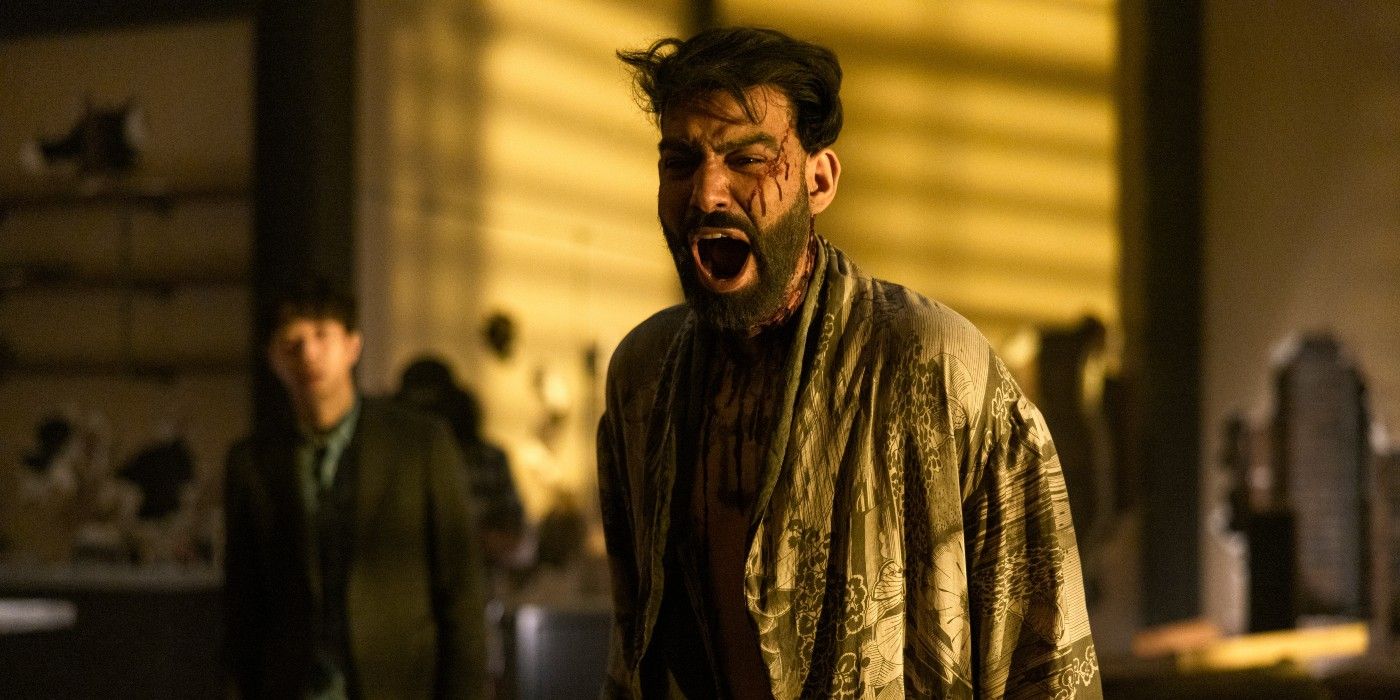Summary
- "The Fall of the House of Usher" is Mike Flanagan's best Netflix show yet, a darkly humorous and contemplative tragedy that weaves the works of Edgar Allen Poe into a riveting tale of horror and hubris.
- The series features a talented cast, including Flanagan regulars, who relish their roles as deliciously evil characters within the Usher family.
- While the show includes jump scares and unsettling demonic entities, the true horror lies in the deteriorating relationships and the excessive violence, which the series never takes too seriously, resulting in a macabre and laugh-out-loud funny experience.
Mike Flanagan has long served as Netflix's horror maestro and, now that he has bid farewell to the streaming service, the writer-director gets one hell of a goodbye. The Fall of the House of Usher is Flanagan's best Netflix show yet, an operatic tragedy that uses the works of Edgar Allen Poe to weave a web of one family's horrifying depravity and, as the title suggests, their fall into the depths of hell. Flanagan's work with Netflix has dabbled in everything from melancholic ghost tales to haunted house horror shows and meditations on faith by way of vampirism. The Fall of the House of Usher is a tragedy, yes, but it's a stylistic, darkly humorous one, as riveting as it is contemplative. Not all the series' many moving parts work but as a whole, it's a brazen tale of horror and hubris told by one of the genre's best creators.
The Fall of the House of Usher weaves several different Poe tales into its fabric, with some episodes being modernized versions of the gothic tales the famed author tells. All of it revolves around the Usher family, whose scion Roderick (Bruce Greenwood in the present, Zach Gilford in the past) oversees Fortunato Pharmaceuticals and is at the center of a lawsuit centered on the impact of the opioid epidemic. It's a tale that has been told numerous times over the last several years (The Fall of the House of Usher is the third Netflix project in as many months to have at least some sort of commentary on the crisis). That this aspect of the story ties into one of the show's weaker subplots may be indicative of its fragility as a metaphor, but it's mainly used as a framing device in the present-day timeline, when much of the story takes place, and The Fall of the House of Usher doesn't spend too much time dwelling on the effects of the opioid epidemic (a good thing, too, when there are other films and shows out there that give a more well-rounded picture of the subject).
Roderick, alongside his sister Madeline (Mary McDonnell in the present, Willa Fitzgerald in the past) and their venomous lawyer Arthur Pym (Mark Hamill), are clinging on to the empire as it comes under attack and the series isn't shy in revealing that all of Roderick's children will fall victim to this attack at some point during the show's eight-episode run. How they die is part of the fun and each of them very much has it coming. The Fall of the House of Usher's cast, comprised mostly of Flanagan regulars, is clearly relishing in the opportunity to play people so deliciously evil. Katie Siegel is hysterically brittle as Camille, the family's in-house PR maven, while Samantha Sloyan (a standout from Midnight Mass and a standout here) is brilliant to watch as a wannabe-GOOP health guru with a meathead husband. T'Nia Miller's Victorine may be the most tragic of the adult Usher siblings while Rahul Kohli's Napoleon, Sauriyan Sapkota as Prospero, and Henry Thomas as Frederick are all equally detestable and fascinating. It's the chameleonic Carla Gugino who steals much of the show, though.
Like his past projects with Netflix, The Fall of the House of Usher has a keen eye for the horrors of deteriorating relationships as it does ghosts and gore. While there are plenty of jump scares (including one that may even rival The Haunting of Hill House's notorious jump scare) and well-placed demonic entities that are sure to unsettle, the real horror is in how the Usher family reacts to the unraveling of their lives. A backstory is given revealing just how the dynastic family got here, and it seeks to explain why exactly the family is so evil (and, in part, justify their grisly end). I couldn't help but feel as if this part was perhaps a bit unnecessary — why must their wickedness be explained away by a convoluted subplot? Why can't they just be evil for evil's sake?
As far as explanations go, it's a thin one, but The Fall of the House of Usher doesn't lean on it to justify the excess and violence that takes up most of its episodes. Thankfully, the series never takes anything too seriously and the most surprising part may be that it's, at times, laugh-out-loud funny. It's macabre but decadently so. There are also layers to the way in which Flanagan is utilizing Poe's stories and poems and any lit-fan out there will likely be pleased by the plethora of ways in which the creator twists these tales to fit his Machiavellian designs.
After years of fruitful collaborations between Flanagan and Netflix, it's almost a shame to see the horror maestro depart the streamer. His next home is Prime Video, a streamer that has struggled in the horror space. The Fall of the House of Usher is both a fitting goodbye to an era and a glorious look at what's to come. Flanagan is at the height of his powers, as are his collaborators, and the future looks bright and absolutely horrifying.
The Fall of the House of Usher will be released on Thursday, October 12 on Netflix. The series consists of 8 episodes.



